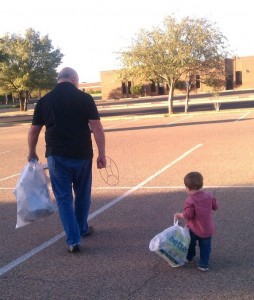 I have an urgent news flash for you: Just because you know something is wrong, that doesn’t mean you’ll avoid it.
I have an urgent news flash for you: Just because you know something is wrong, that doesn’t mean you’ll avoid it.
Shocking, I know. And the corollary is also true: Just because you know you’re supposed to do something, that doesn’t mean you’ll do it.
Suppose you could interview Jonah – the Old Testament’s version of Gilligan – and ask him what the most important requirement was for prophets. What do you think he’d say? My guess is that he would tell you that a prophet’s number one job is to speak what he hears the Lord saying to speak.
Why, then, did Jonah have to travel from the boat to the belly to the burp to the beach before he decided to do what his own standard said to do?
Resurrect a first-century Pharisee and ask him what it took to please God, and you’d probably hear something about keeping the law and prophets, serving God and walking in humility and discipline.
Why, then, did Jesus refer to the scribes and Pharisees as unwilling to lift a finger to meet a need, doing all their deeds to be noticed by men, loving the place of honor at banquets and the chief seats in the synagogues, and insisting on being called by respectful titles in public? If serving God faithfully was so important to them, why did the Son of God warn people not to be like them?
Whenever the bad news breaks out about somebody who has shocked us with their oh-no, no-no behavior, we often ask silly questions like, “Well didn’t they know that was wrong?” Of course they did. Why, then, would someone violate their own standards of right and wrong? [click to continue…]
{ Comments on this entry are closed }








